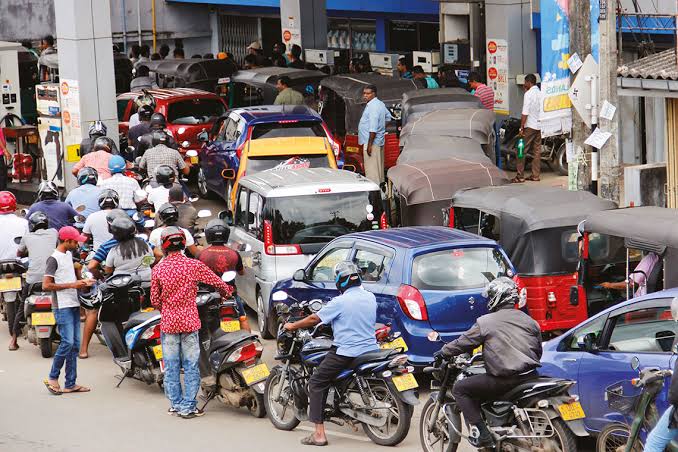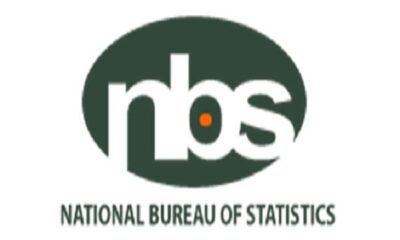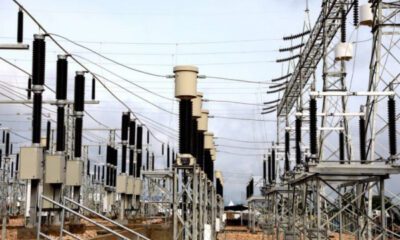News
Capital importation records 4th decline to $1.06bn in Q4, 2022
Capital imported into the country recorded the fourth consecutive quarterly decline to $1.06 billion in the fourth quarter of 2022 (Q4’22), from $1.15 billion in Q3’22.
Data from the National Bureau of Statistics (NBS) Capital importation report for Q4 ’22 showed that Capital Importation fell quarter-on-quarter by 27 per cent to $1.57 billion in Q1’22 from $2.18 billion in Q4 ’21.
In Q2’22, capital importation fell by 2.5 per cent to $1.53 billion and down by 24 per cent to $1.15 billion in Q3’22.
The downward trend continued in Q4’22 when capital importation fell by 7.8 per cent to $1.06 billion.
The NBS stated,“In Q4’22, total capital importation into Nigeria stood at $1.06 billion, lower than $2.18 billion recorded in Q4’21, indicating a decrease of 51 percent. “When compared to the preceding quarter, capital importation also fell by 8.5 percent from $1.15 billion in Q3’22.
“The largest capital importation during the period was received from Other Investment, which accounted for 65.17 per cent ($691.23 million) of total capital imported in Q4’22.
“This was followed by Portfolio Investment with 26.8 per cent ($285.26 million) and Foreign Direct Investment (FDI) with 7.9 per cent ($84.23 mAQillion). “Disaggregated by Sectors, capital importation into the production sector recorded the highest inflow of $392.54 million, representing 37 per cent of total capital imported in Q4 2022. This was followed by capital imported into the banking sector, valued at $255.45 million (24 percent), and Telecoms with $168.27 million (15.86 per cent).
“Capital Importation by Country of Origin reveals that capital from the United Kingdom ranked top in Q4’22 with $455.24 million, accounting for 42.92 per cent .
“This was followed by the Republic of South Africa and the United Arab Emirates valued at $119.31 million (11.25 percent) and $116.82 million (11.01 per cent) respectively.
“By Destination of Investment, Lagos state remained the top destination in Q42 22 with $600.54 million, accounting for 56.62 per cent of total capital investment in Nigeria.
This was followed by Abuja (FCT), valued at $424.50 million (40 percent).
“Categorization of Capital Importation by Banks shows that Citibank Nigeria Limited ranked top in Q4’22 with $308.72 million (29 per cent).
“This was followed by Standard Chartered Bank Nigeria Limited with $232.45 million (21.9 per cent) and Rand Merchant Bank with $102.00 (9.62 per cent).
“However, on an annual basis, capital importation was $5.3 billion in 2022, a decrease of 20.47 per cent from $6.7 billion in 2021.”
News
Naira slumps seventh times against Dollar in days at Foreign Market


The Naira has slumped seven times in recent days against the US dollar at the foreign exchange.
FMDQ data showed that the Naira recorded a seventh drop against the Dollar, quoting N1309.88 per Dollar on Thursday from N1308.52 on Wednesday.
This represents a N1.36 loss on a day-to-day basis.
At the parallel market section, the Naira dropped between N1,300 and N1,370 on Thursday from between N1,250 and 1,300 the previous day.
In the last four days, Naira has recorded depreciation against the Dollar in the FX market.
Last week, the Naira dropped three times against the Dollar in the foreign exchange market.
Accordingly, the Naira had lost N237.14 since April 17, 2024 when it traded at N1,072.74 per Dollar at the FX market.
The development comes despite the Central Bank of Nigeria releasing 10,000 dollars each to BDC at N1,021 to a dollar with a caveat to sell at most 1.5 per cent above the bought price.
This is the third recent intervention for BDCs amid the bank’s effort to defend the Naira.
BDC operators blamed peer-to-peer cryptocurrency platforms like Binance for the recent depreciation of the Naira against the dollar in the foreign exchange market.
News
Fuel scarcity: Long queues resurfaces in Zamfara


Fuel scarcity has hit parts of Zamfara State, with many filling stations under lock and key.
Newsmen observed that most filling stations in Gusau, Kaura Namoda, Tsafe and other places were not dispensing the commodity.
A liter of fuel is being sold at between N800 and N850.
However, efforts to speak with some Independent oil marketers proved abortive as they refused to comment on the issue.
Vehicle drivers and motorcycle riders, who spoke with DAILY POST, expressed dismay over the return of long queues at the filling stations.
“We were rejoicing that the long queues at filling stations had gone, but the problem is back,” one Abubakar Tukur said.
News
Yahaya Bello not subjected to media trial – EFCC


The Economic and Financial Crimes Commission, EFCC, has dismissed claims that its Chairman, Ola Olukoyede subjected the immediate past governor of Kogi State, Yahaya Bello to a media trial.
Olukoyede had organized a press conference where he disclosed that Bello withdrew $720,000 from a government account to pay his child’s school fees.
He also claimed that the former governor told the EFCC to come over to his village and interrogate him.
The EFCC Chairman further vowed to resign if he fails to arrest Bello and follow through the investigation.
But a former Vice President of the ECOWAS Court of Justice, Prof. Nwoke Chijioke, disagreed with Olukoyede.
Chijioke said the press conference was a wrong approach and an unfair trial.
Chijioke said, ‘’The EFCC chairman’s press conference of yesterday was really uncalled for. That is an unfair trial. All these challenges are because of what I would call a media trial.”
However, EFCC spokesperson, Dele Oyewale, said Olukoyede’s revelations did not violate any rule.
A statement by Oyewale said, “There is nothing the chairman said on Tuesday that was not already in the public domain.
“Also, we have filed our processes, and everything is before the court, so the chairman did not say anything that is not already in public domain.
“The chairman himself is a lawyer, and he knows his onions. Everything he said was within his rights as the Chief Executive Officer of the EFCC.”
-
Finance3 months ago
Court orders Sen. Victor Umeh to repay N136m bank debt to AMCON
-



 Abuja Update2 months ago
Abuja Update2 months agoUNDP, FG partnership needed to achieve inclusion, equity- Minister
-
Abuja Update1 month ago
Banks drive stock market performance with N147bn gain
-



 Infotech4 weeks ago
Infotech4 weeks agoWorld Backup Day: NITDA urges Nigerians to ensure backup of data
-
capital market2 years ago
Rt.briscoe, FBNH, Others halts negative performance of stock market
-



 Health1 week ago
Health1 week agoCapacity training will reduce migration of health workers- NPHCDA
-



 Health3 weeks ago
Health3 weeks agoImmunisation: FG, GAVI seek synergy with Sokoto Govt.
-
Infotech2 weeks ago
Forex for Beginners: Unveiling the currency exchange and how to trade it












